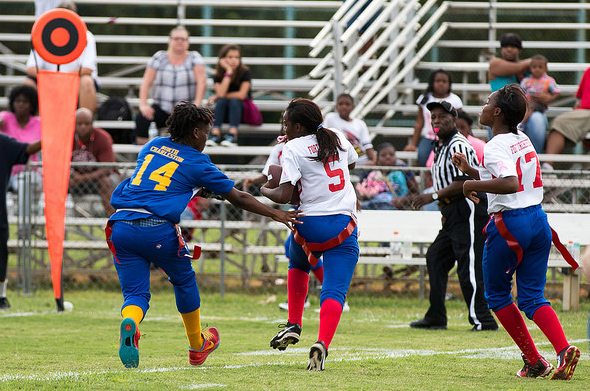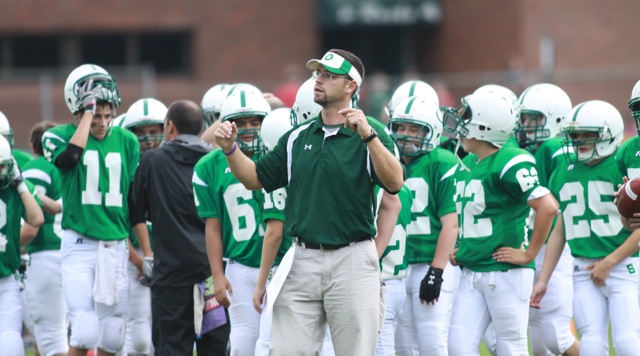Leaving a Worthwhile Legacy as an Athletic Director
As an athletic administrator, you have an enormous number of tasks and responsibilities. This means that there is never a time in which you don’t have something to do. Whether you are in the position for one or twenty years, therefore, you probably never thought about how you will be remembered. You just try to do the best that you can to get through each day.
But there will come a time when you will step aside. This could be due to being completely spent and worn out, and it is simply time to retire. Perhaps you are ready for a new challenge and will look to move into another position, or there could be family concerns that require your attention. For whatever reason, your tenure as an athletic administrator will end at some point. What will your legacy be, and this may be a more complicated question than it seems?
 In many school districts, most people — administrators, teachers, parents, and community members — do not understand what an athletic administrator does. You are very much like an iceberg. No, that doesn’t mean that you are frigid. But think about icebergs. About 15% is visible above the waterline, and the other 85% is submerged.
In many school districts, most people — administrators, teachers, parents, and community members — do not understand what an athletic administrator does. You are very much like an iceberg. No, that doesn’t mean that you are frigid. But think about icebergs. About 15% is visible above the waterline, and the other 85% is submerged.
Individuals see you at games, serving as the master of ceremonies at award programs, and hosting preseason parent meetings. Many naturally assume that you schedule games, buses, and officials, and this would be correct. But for those countless items that are below the waterline, virtually no one realizes that you handle them. Much of what you do is behind the scenes, out of sight, and yet, essential for the operation of your program.
If a new facility is built or refurbished during your tenure, that could be part of your legacy. And most athletic administrators want the best facilities for their student-athletes and coaches. Safety, sufficient room, the needed amenities, and the desire to have attractive venues for practice sessions and games are understandable goals. But shouldn’t there be more that is involved with an athletic administrator’s legacy than easily visible facilities? Yes, absolutely. Or at least, there better be!
Assuming that you embrace the concept of education-based athletics, the following are some items or aspects that should be part of your legacy.
- Hired the best individuals for your coaching positions. You are not, or should not, be looking for candidates only with winning records and a string of championships. It is much more important to bring on board exemplary people with great character and positive qualities such as being nurturing, supportive, enthusiastic, encouraging, and others. Because that is what is needed to provide the best environment for your student-athletes.
- Provided professional development and mentoring for your coaching staff. It is a legal responsibility to help coaches to grow, develop and improve by providing training (this is outlined as one of the 14 legal duties in the NIAAA Leadership Training Course 504). There is always something more to learn in terms of risk management, sports medicine developments and best practices. Your student-athletes are the ultimate beneficiaries of coaches who are well informed and this all starts with an athletic administrator creating and providing these opportunities.
- Supported and showed appreciation for your coaches. Whether being confronted by a misguided, challenging parent or faced with a new, difficult experience, is available to help your staff when they needed it is critically important. The retention of coaches is largely dependent upon expressing appreciation for their efforts, and this can often be accomplished through simple expressions and efforts on your part. Did this happen on your watch?
- Championed the education-based concept and used it as the foundation of your program. Years after their competitive days are finished, athletes won’t remember the scores of individual games and may not even remember their seasonal record, but they will remember the funny incidents, the life-long lessons learned, and the relationships that were formed. The number one reason that young people participate in athletics is to enjoy the experience with their friends and coaches. Is this the culture that you created?
- Offered a wide range of sports and levels of teams. This would include constantly trying to add new and additional offerings based on student interest. By doing this, you are providing the opportunity for as many students as possible to experience the immense benefits of education-based athletics.
In addition, were all of your teams filled? Even though the selection process in which there are some candidates for teams that cannot be kept, this is a backhanded compliment. It is also an indicator that young people want to be part of your program and they view membership in a team to be extremely valuable.
- Earned a reputation for good sportsmanship by your teams and program. As the athletic administrator, it is your responsibility to set the standards, ensure that the expectations are upheld and maintained, and correct and handle any actions or incidents that are inappropriate. In addition, you also should educate, encourage, monitor, and help everyone to exhibit proper decorum. How will your teams and program be remembered? It is a reflection upon you, and the coaches, athletes and fans.
- Embraced and complied with Title IX as an important, foundational element of your program. Not only did you work to comply, but did you continually strive to educate all constituents about what was involved, provide the best equipment and facilities possible, and do everything that you could to promote equal opportunities? Beyond your efforts with compliance with this landmark legislation, which is now 50 years old, it is also the right thing to do. Did the female students in your school benefit from your work on their behalf?
- Initiated and provided educational meetings and materials covering issues such as preventing hazing, bullying, and cyberbullying. Also, sessions and efforts were conducted to help with mental health, the responsible use of social media, and the value of involvement in social equity issues.
- Made a difference in the lives of student-athletes who graduated from high school and then college, and now are contributing members of the community as doctors, nurses, teachers, social workers, and other essential professions and positions. These young people gained life-long qualities and values from their participation in your program, and they are walking representatives of your legacy.
» ALSO SEE: 7 Essentials of Great Teams
And one last comment about legacies. You don’t or shouldn’t intentionally do something with the intent that by doing so, it will add to or cement your legacy. No! If you do your job daily to the best of your ability, whatever you do or accomplish is part of your legacy. Even if no one knows that you are responsible for any task, initiative, project, or effort, they become your legacy. Also, interactions, perceptions, and observations by others determine your legacy, you don’t.





